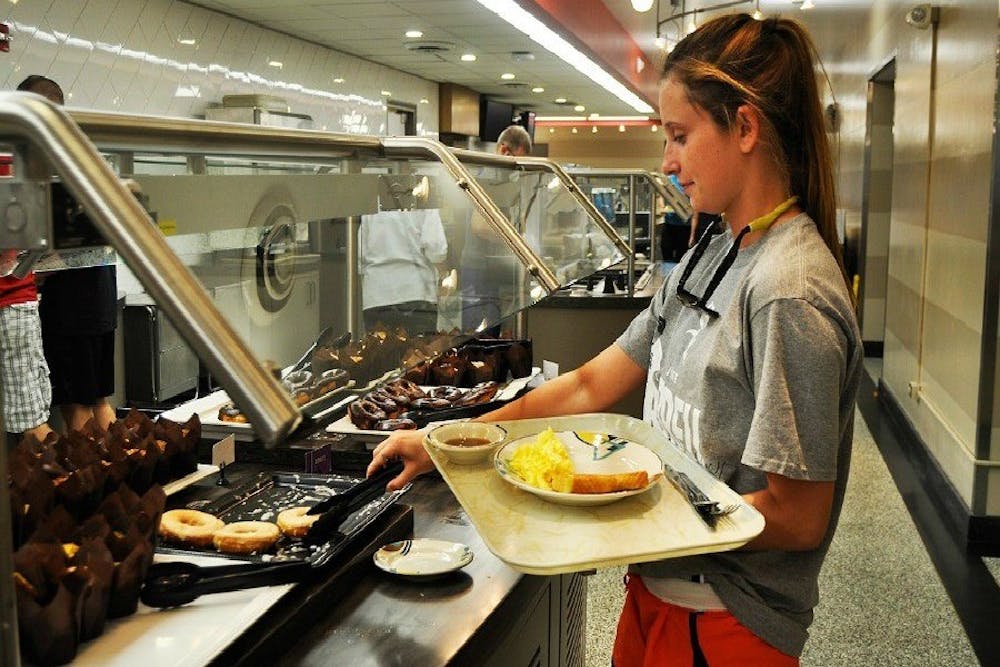By Joey Hart, For The Miami Student
Starting next school year, Miami's dining halls and other food service locations will begin using locally produced trans fat in order to help the surrounding economy and decrease food mileage.
Owen Krader, Miami's director of housing options, meals and events, said this decision will lower the cost of food production at Miami and increase the availability of the partially hydrogenated oil.
"It's simply not responsible to be shipping our food ingredients from halfway across the country when there are plenty of artificial additives right in our backyard," Krader said. "I think it will do students well to know that the oil lining their arteries will be coming from right here in Ohio."
He added this decision could allow the university to use even more trans fat and other additives in its food due to local availability. Plans include proposed dishes such as fried pizza, salads with just dressing and simply replacing the soup of the day with a vat of melted butter.
Sophomore Chloe Shoal said this change will greatly improve her previously poor image of the school's food.
"When you know your food is using additives that are coming from hundreds of miles away, it makes poking through a pool of gravy to find a chicken breast and shoving it in your mouth a little less enjoyable," Shoal said.
She added that next year, knowing the trans fat she eats will be produced locally will put a "little smile" on her face each time she loses her breath walking up one flight of stairs.
"It will be an anguish of appreciation," Shoal said.
Other students aren't stomaching the change as easily. First-year Gracy Birch said the decision may promote unhealthful eating.
"Cutting costs and food mileage is great, but don't we also want to look at students' eating habits?"
Krader, though, was quick to defend.
Enjoy what you're reading?
Signup for our newsletter
"Any criticism of the health of Miami's food is completely ridiculous," Krader said. "We have plenty of healthy foods, such as cooked broccoli and green beans. They may be hard to find because they're hiding underneath a gallon of melted cheese, but trust me, they are there."
This is a piece a journalistic satire. None of the quotes from any sources, real or fake, are factual.




